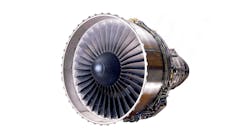By focusing on the cultural traits of their foreignborn Latino population, foundries and diecasters can boost productivity, lower per-unit costs, and do a better job of meeting customers’ demands. Most companies have tried to motivate their workers for better productivity, with varying degrees of success. Many of those with mainly Spanish-speaking workers find Gainsharing gives them more productive employees and a greater competitive advantage, because Latin cultural traditions meld closely with Gainsharing precepts.
Gainsharing is a group pay-for-performance program. Workers’ performances are quantified and assigned a monetary value. When workers top a performance threshold pre-set by management, they can earn a bonus: Employees earn half the value of their better performance, and the company receives the other half. So, for every dollar paid to workers for better performance, a foundry saves a like amount through higher productivity (less overtime), improved quality (less waste, customer returns) and better safety (lower workers’ comp costs.) No sense of entitlement results because employee bonuses must be re-earned during each short Gainsharing period. (See “Meeting and Beating the Imported Competition,” FM&T, March 2005.)
In 1981, Congress ordered the Government Accounting Office to evaluate productivity improvement programs. The GAO reported Gainsharing plans were “… the wave of the future because they unite an organization’s workforce in the goal of boosting operational performance.” On the average, the GAO said, “performance climbed by 17 to 22 percent.” (“Productivity Sharing Programs: Can They Contribute to Productivity Improvement?” U.S. General Accounting Office, AFMD-81-22, March 3, 1981.)
Cultural differences To refer to “cultural traits” here is neither to stereotype nationalities nor to revert to old labels or pigeonholes. Understanding different cultural points of view prevents the communication lapses and inadvertent missteps that harm productivity. Being alert to cultural differences is what “cultural sensitivity” means.
For foundries and diecasters with foreign-born workers, group pay-for-performance programs succeed because they incorporate four notable aspects of traditional Latino culture:
• A tradition of working together in collaborative (social) groups;
• Valuing mutual support and collaboration;
• An acceptance of authority, and a preference for specific work goals and instructionsl and,
• Positive response to incentive pay plans that reward performance immediately.
As a group bonus plan, Gainsharing strongly appeals to Latino culture by emphasizing group cooperation an incentives. Gainsharing promotes cooperation among workers of all backgrounds better than any "sensitivity" or "diversity" training program can because of its financial benefit. By fostering the need to work cooperatively with other workers, no matter their ancestry, Gainsharing offers all employess the opportunity to become a meaningful member of the workforce and partner with management in productivity improvement.
Since successful Gainsharing plans rely on employees' and supervisors' suggestions for working smarter rather than harder, care must be taken to encourage group participation in Spanish. (See "Managing the Hispanice Diecaster," FM&T, Feb. 2004)
Gainsharing avoids the drawbacks of profit sharing an 401 (k) plans. Both are designed to motivate and reward workers for successful company performance by giving them personal financial stake in its future. However, most metalcasters find neither profit sharing nor 401 (k)s lead to greater worker efforts toward better quality and productivity now because workers will not equate the efforts they make today to a payout at the end to the end of the year, or upon retirement.
Gainsharing avoids the drawbacks of profit sharing and 401 (k)-based retirement plans for several reasons:
• Gainsharing's rewards are immediate. Employess identify what they do today with the bonuses they can earn at the end of a month.
• Gainsharing encourages teamwork rather than destructive competition.
• Gainsharing emphasizes cooperation and group effort. It is the only realistic plan tying additional individual earnings to overall plant performance. Employees quickly learn that cooperation and collaboration pay off.
Because Gainsharing rewards specific performances and recognizes collaboration, it appeals to a foreign-born Latino workforce. In fact, Gainsharing has an even better chance of success with these workers than other plans, because the basic concepts of the plan are in syn with their cultural expectations.
Not one size fits all
Since metalcasters differ in sizesize, technologies, customer base, an internal situation, there is no one-size-fits-all Gainsharing plan. An individual company must tailor its response to its particular circumstances, while taking into account the character of the workforce.
A preponderance, 80%, of foreign-born workers speask Spanish. About 80% of foreign workers in the U.S. are Lation, and of these 86% are Mexican. Within the next decade, Hispanics will likely become the largest minority in the United States.
In fact, it's estimated that Hispancis will make up nearly a quarter of the U.S. population by 2050, compared with 13.2 percent today, as reported the U.S. 2010 Census. Nationwide, the workforce in the metalcasting industry is about 30% Hispanic. Today, many foundries and diecasters, especially those in California, the Southwestern states, and Midwestern cities are almost 100% Hispanic already.
The proper rollout of a Gainsharing program is a key to its success. It should include:
• Meeting with the workforce to articulate Gainsharing goals (lower scrap and rework, faster throughput, better productivity) clearly and simply, in Spanish.
• Emphasizing Gainsharing's immediate rewards: bigger paychecks, employee unity. Positive employee attitudes are an important byproduct of Gainsharing.
• Underling that Gainsharing goals are achieved not just by "working harder," but by working together to identify causes and remedies of production problems.
• Training supervisors the best ways to interact with their Mexican workers. (See "How to Train across Cultures," Industrial Management, Nov. 2010).
Even though the economy has improved over the past year and most foundries and diecasters are busy, there is no let-upto competitive pressures. Metacasters are faced with customers using Pacific Rim competition to insist on lower prices, better quality, and faster deliveries. The key to their success lies in their willingness to let employees cooperate in boosting productivity, lowering per-unit costs, and boosting quality
| Mariah de Forest is senior vice president of Imberman and DeForest Inc., a managerial consulting group. Contact her at [email protected], or 847-733-0071, for more information and reports on managerial techniques. |









